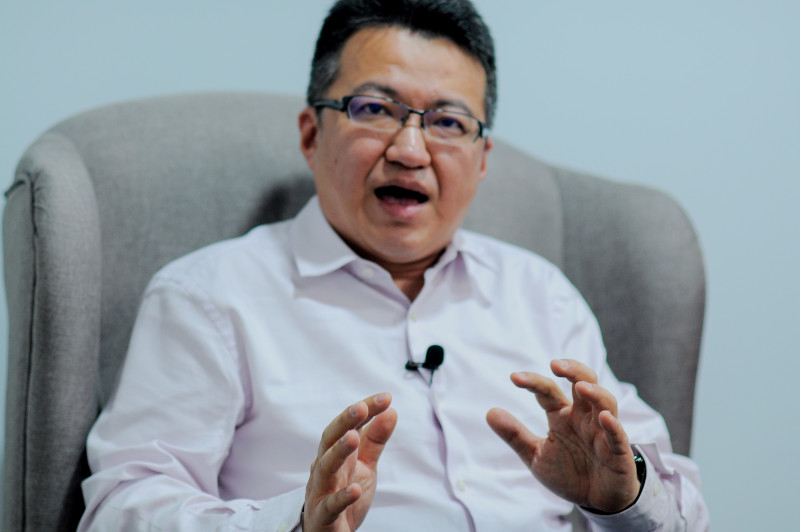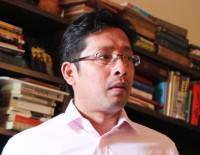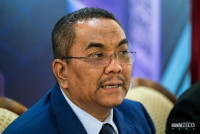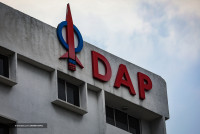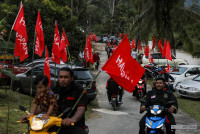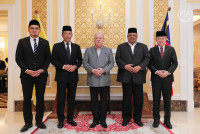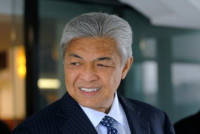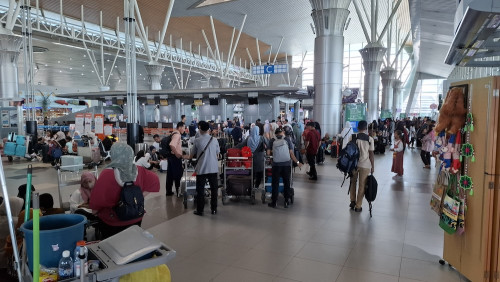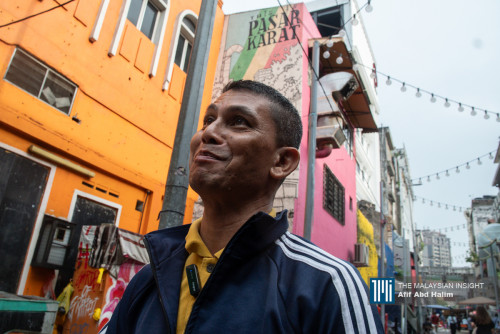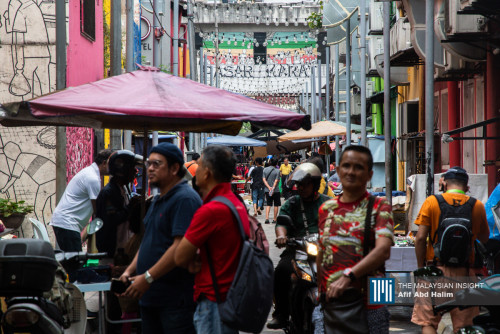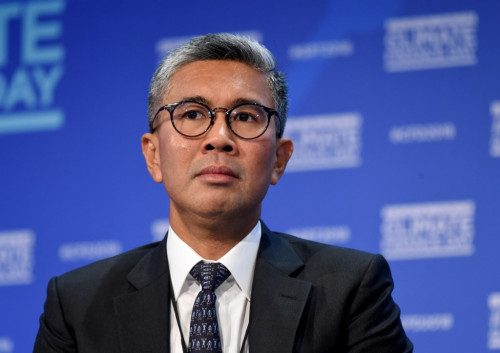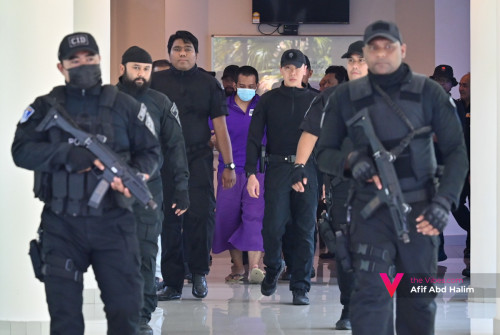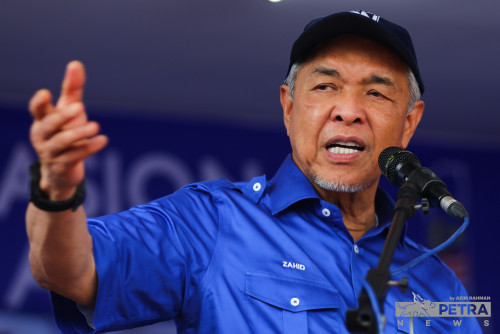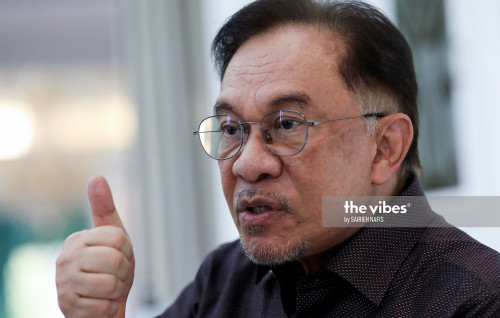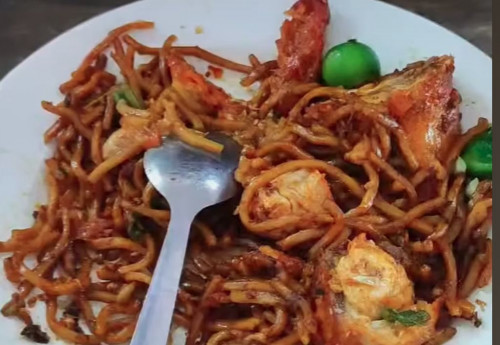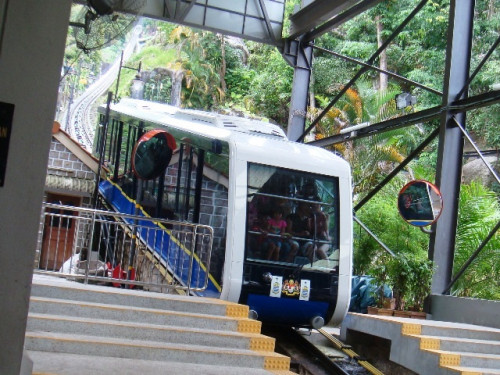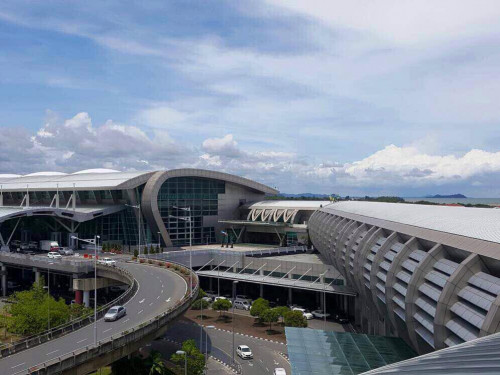KUALA LUMPUR – Part of the Reformasi generation of young cadres who joined DAP following the watershed events of 1998, Liew Chin Tong is widely regarded as one of the principal strategists behind the ascendency of the party. Twice MP and former deputy defence minister, the present senator, in an exclusive interview with The Vibes’ Eddin Khoo prior to the imposition of the emergency, speaks extensively on the ideals and realities of The Great Reset in Malaysian politics.
Eddin Khoo: DAP was granted permission to postpone its party elections last year as a result of the Covid-19 pandemic. Nevertheless, what kind of watersheds do you perceive for the party at this juncture of its history?
Liew Chin Tong: I think the most important watershed in the party’s history was the 2008 general election, and the subsequent leadership team that was formed following that. DAP had suffered defeat upon electoral defeat in 1995, 1999 and 2004. Suddenly, in 2008, we won in places we never thought we could win, and we gained power in Penang. Many of those who were elected in 2008 are now in their late 30s and 40s. Some of us had been elected in our mid 30s – I was elected at the age of 31. This generation is now at their prime.
There is the strength of the DAP with (Lim) Kit Siang’s and (Lim) Guan Eng’s generation, there is what I would call the 2008 cohorts, and there is an even younger generation who are now in their early 30s who were elected in 2013 and 2018. So, within DAP, we now comprise four generations. I believe this is a generational affair and, hopefully, this third generation will play a more important role in the party elections.
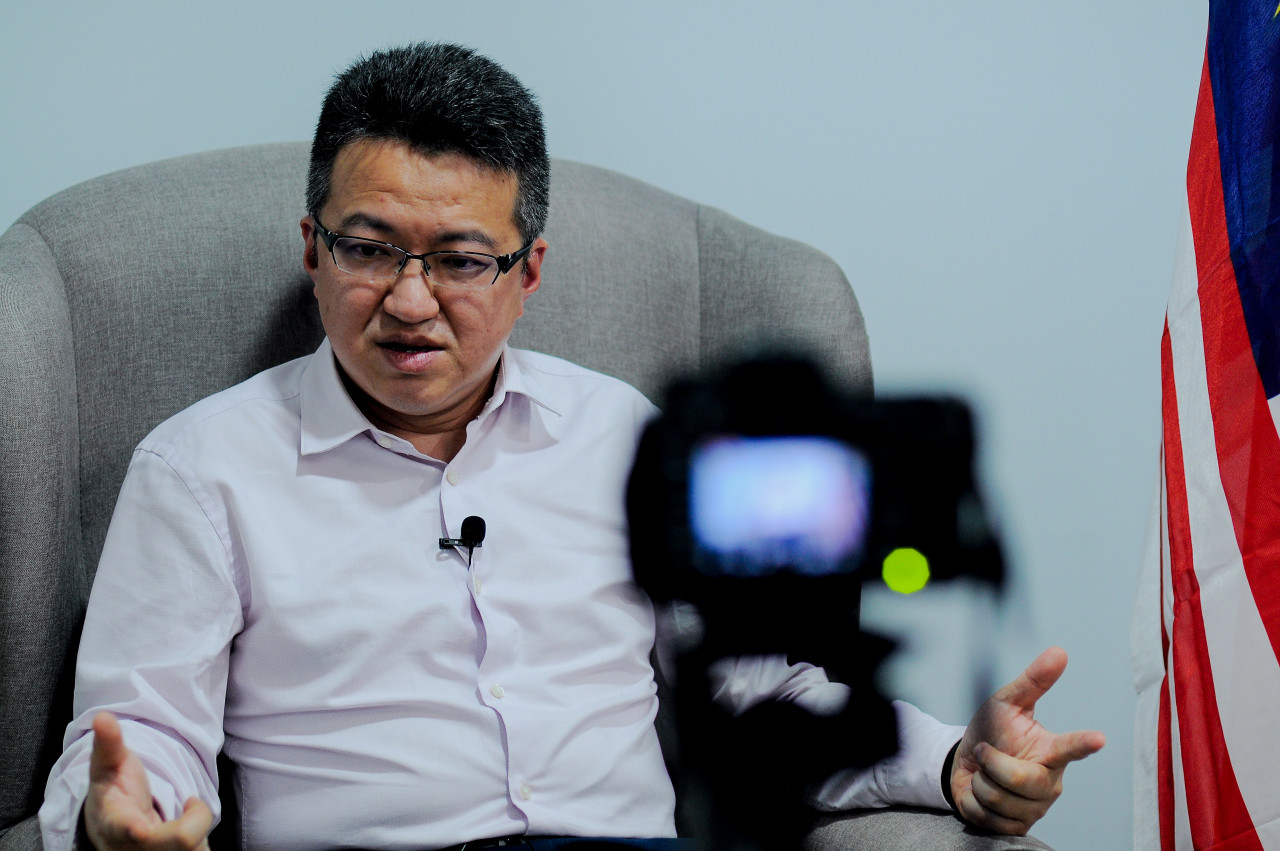
EK: What do you think this cohort of 2008 characterises?
LCT: We characterise teamwork: before 2008, we had no taste of power – we were seen as a permanent opposition party and we required a single figure in the form of Kit Siang or Guan Eng to spearhead the party because it was difficult getting people. But the 2008 election afforded DAP a whole new generation of talent, and this generation has been working in formal positions within the party. I was coopted – not elected – in 2008, Anthony (Loke) was elected in the 2004 elections, Tony (Pua) was elected in the 2008 party elections. This cohort has been there since 2008.
EK: DAP comes under a great deal of scrutiny and there exists a public perception that nothing very much changes within the party. How credible is this perception and what kind of reforms within are actually needed at this time?
LCT: DAP has been a significant force since 2008 but no one actually bothers to understand how our party elections work. The DAP elections resemble a parliamentary system. It is an indirect election. You elect CEC (central executive committee) members who elect the secretary-general, and that is how the party functions. It is a not a presidential system.
There are some in the party who believe there should be direct elections for the secretary-general, though we have term limits for our secretary-general, unlike other parties. There are those who think the party should include more young people, even though the fact is, we are, comparatively, very young as a party. There are those who think we don’t have enough Malay representation, which is an issue we will have to deal with. We do need more Malay leaders. There are those who think that Kit Siang and Guan Eng have an overbearing influence on the party, yet it is also they who have put the most effort into leading the party.
I hope that more people will spend time trying to understand DAP and have genuine discussions on how to change.
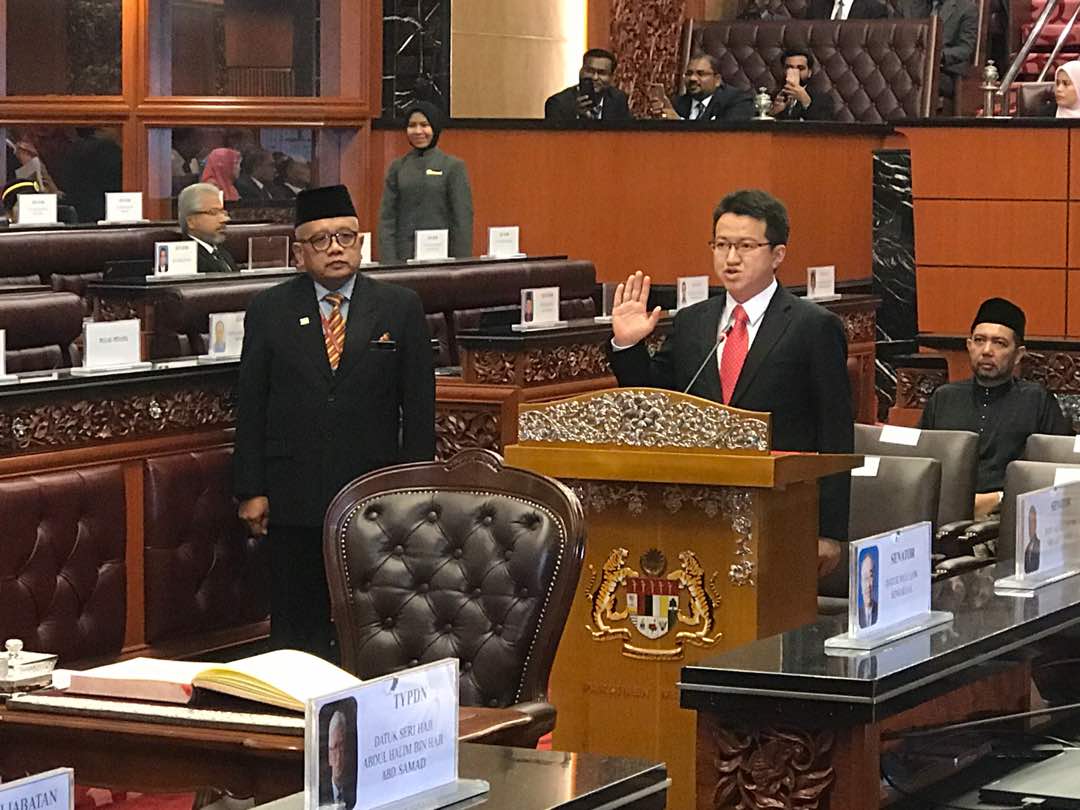
EK: DAP appears mired in a contradiction – on the one hand, seeking to reach to a wider community, yet at the same time, having to yield to its ethnic Chinese base. How difficult is it, for you in particular, negotiating this very delicate balance?
LCT: On the one hand, we are happy to be held to a higher standard. We should be perceived as a party that has many Malays, many non-Malays, and to be a party that not only focuses on identity of ethnicity but that looks at other identities, in pursuit of common ground.
DAP has now established its footprint in all states in the country, which is quite unique for a political party. DAP has indigenous people from Sabah and Sarawak as elected representatives. I think this is quite remarkable.
But to deal with the question of tension between ethnic groups, I think more needs to be done as a party to educate Malaysians that, even as there are Malay anxieties, there are also non-Malay anxieties. Among concerns raised by some DAP members is that, just because there are Malay anxieties, non-Malay anxieties cannot be ignored.
What we are saying is that we are not ignoring anxieties; we are saying Malaysians – whether Malays or non-Malays – at some point should feel comfortable and be less concerned with particular anxieties, and seek common ground.
The process we are facing is a reflection of what the nation itself is facing. If we can eventually comfort everyone in DAP that it is fine to be open, that we don’t need to focus on anxieties but on building something together beyond ethnicity while understanding these anxieties, then we can deal with things as a whole.
These anxieties are, in fact, a reaction to living in a multi-ethnic society. It is something we will have to deal with together. So, I am not taking the approach of saying anyone is wrong to talk about protecting a certain identity, what I am saying is, let us recognise that there are, indeed, anxieties but, at the same time, we can move forward once we have acknowledged what the nature of these anxieties are.
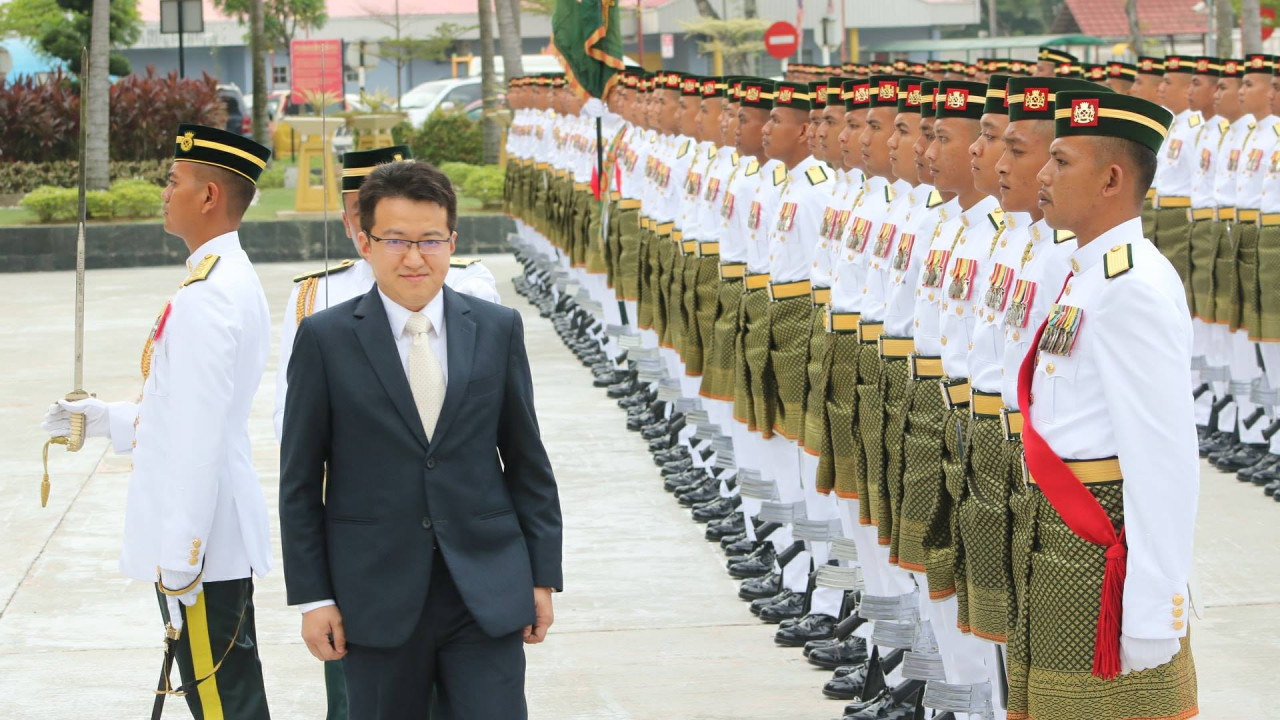
EK: You were among the principal strategic figures in the lead up to events of May 9, 2018. Following that, what do you think is the communal equilibrium in this age of “post-truth”?
LCT: The New Economic Policy was a political order that encompassed politics and economics. Vision 2020 was another political order, which preoccupied the government for quite a while.
Perhaps we can look back even further: this nation was founded on three significant periods – the post-colonial, the NEP and the Vision 2020 periods. We then have 15 years between Tun Abdullah Ahmad Badawi and Datuk Seri Najib Razak, where the nation appeared to head nowhere. During that time, Umno turned right in a massive way, especially after Datuk Seri Hishammuddin Hussein waved the keris in 2005. It happened again in a more exaggerated way after 2008. We have been in that sort of a situation for 15 years. It is difficult to get out of because there is always action and reaction.
But the Covid-19 pandemic and the Sheraton Move indicate that we should start a conversation to think about a new political order – how to build for the next five, 10, 15, 20 years. Within that context, DAP certainly has a role to play. While we started out very much as a protest movement, we have now been in government, at different levels, for more than 12 years. So, how do we combine and eventually bring everyone along to see that we have a role to play in building a political order that will deal with the interests, anxieties and aspirations of a sufficient number of Malaysians to create a stable society, to find compromise and to move forward together?
It is not easy to think of Malaysia as being able to move away from the chaotic, racialised situation of the last 15 years and head towards something new; it is challenging, but it is something we have to do.
EK: The idea of a new political order requires serious thinking and philosophising. I would like, however, to draw you to a quizzical statement you made when Datuk Seri Anwar Ibrahim publicly declared he had the numbers to assemble a government and that Prime Minister Tan Sri Muhyiddin Yassin’s government had fallen. You were quoted as saying, “whether he (Anwar) has the numbers or not, the declaration will further weaken the Muhyiddin administration”.
That may be the case, but it does also mean the credibility of the opposition could be seriously compromised. To channel a popular expression prevailing among the public today – “what kind of politics is this?”
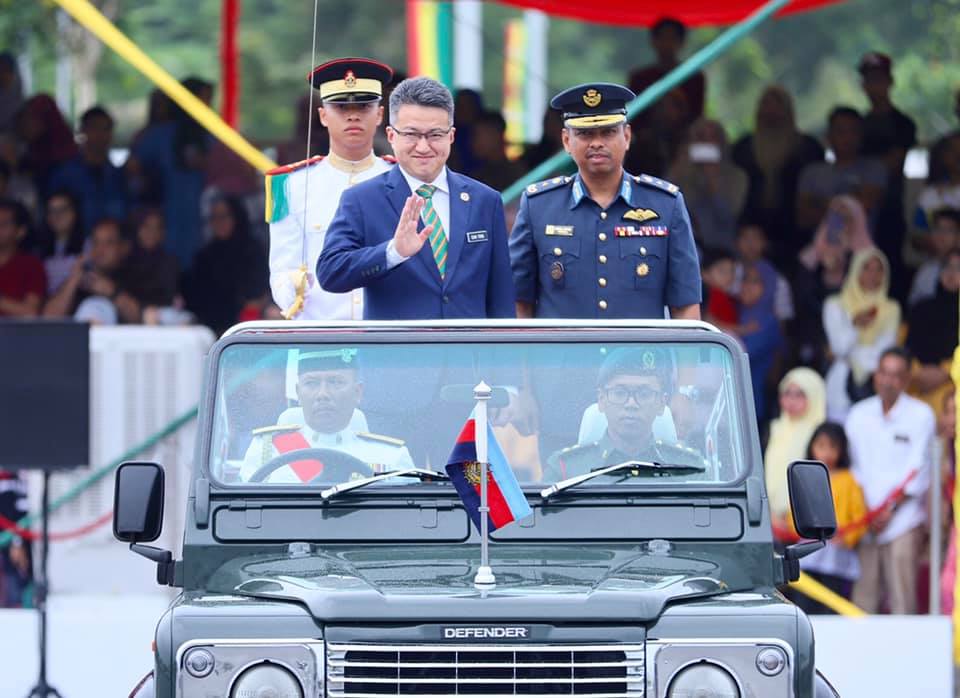
LCT: In a way, we are suffering from our own success. The results of the 2018 elections proved that there is no longer going to be a one-party state. Yet, we still haven’t found a way to accommodate each other in a political system that will result in our society being able to move forward.
Muhyiddin has not able to get out of this Umno thinking. He is still hoping he can command some form of a one-party state, even with this slim majority and having to depend so much on others to supply the numbers. He does not see he that he has to treat his allies better and treat the opposition more equitably.
During the Budget 2021 debate, Loke, on behalf of DAP, suggested there should be a confidence and supply agreement that we can all support. It gave the government a chance to negotiate with the opposition and to build a one-, or even two-year period of stability so everyone can focus on dealing with Covid-19 and its aftermath. But the government was not prepared. So, we are now in a situation where the mindset of the people running the show is still pre-2018. This at a time when we are dealing with new realities where Umno is not going to be a single dominant force, though some of their members hope to resurrect that order.
We are dealing with a situation where, in years to come, we will form coalition governments, where the prime minister’s role is not to act as a presidential premier but as the person to unite a coalition of parties with similar strengths. This idea of a government with parties of similar strength hasn’t dawned on people. But that is actually what Pakatan Harapan is – a collection of parties with similar strengths.
Of course, our failure to manage the relationship between Tun Dr Mahathir Mohamad and Anwar – it is not just Dr Mahathir, not just Anwar, but both – our failure to recognise there were other Trojan Horses interested in being prime minister, our failure to find common ground, I think, that resulted in the fall of the PH government.
But Perikatan Nasional is even worse, especially since people who are running the show fail to recognise there is no more presidential premiership, no more one-party state.
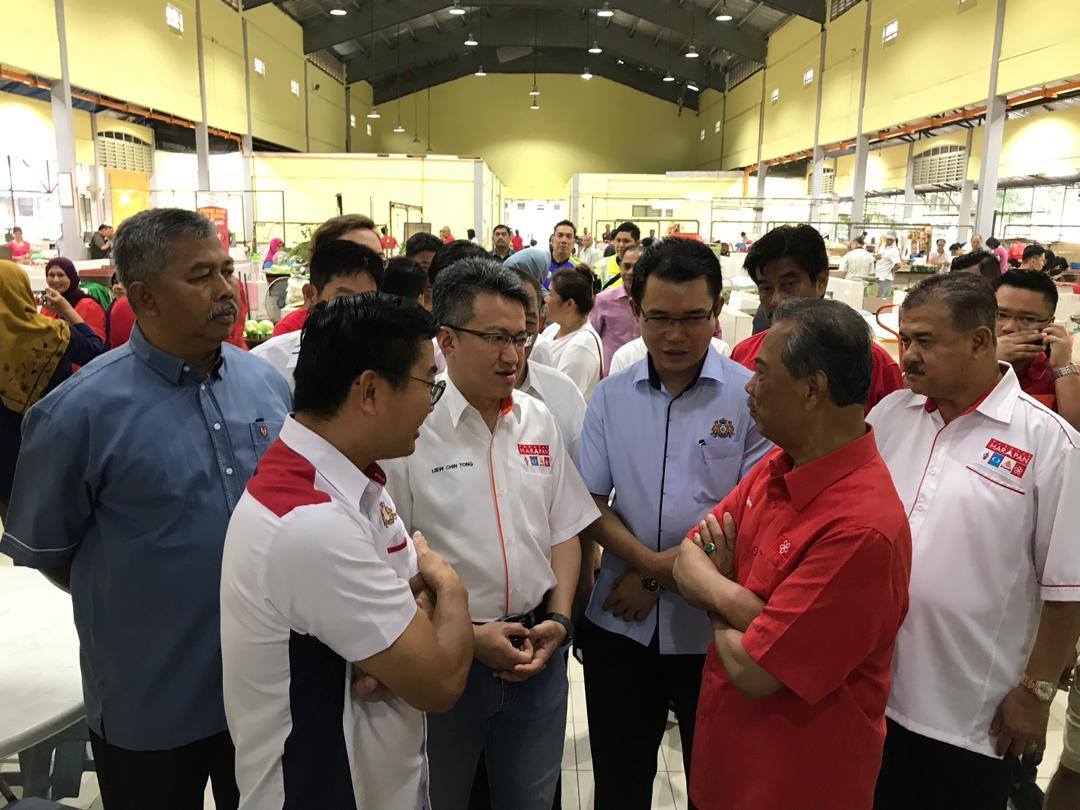
EK: You portray a highly idealised context: it is not that it cannot happen in our country, it is that all the elements of communalism, ethnicity and religion are so easily instrumentalised. It would take a cataclysm to initiate, in your words, a “great reset”…
LCT: Covid-19 is the greatest catalyst you could possibly get in a century. While much of what I say appears idealistic, fundamentally, we need to recognise that we do have differences and that we need to find a mechanism to manage these differences.
The idealised version of the world under the old regime is that we are not different, we should be assimilated, that if you are not prepared to be part of my “vision”, you are out. But I think we have come to a stage where we need to see differences as strengths and capitalise on managing them. Running a government is not about enforcing uniformity; running a government is about managing differences and making differences work for everyone. I think that philosophical change is important, otherwise we will continue to be stuck at attempting to dominate each other, and that will just not work.
EK: To some, the events of May 9, 2018, described initially as “euphoric” turned out to be a missed opportunity, even a mirage. How would you rate the DAP’s performance while in government?
LCT: Given it was our first opportunity as members of the federal government and given the constraints we faced, I would say we did quite well. We were getting used to learning about the bureaucracy, working within a coalition, working within a system in which there is not a single dominant force, and in a context in which DAP was being accused of being a predominant force among the Malay ground, while accused of being silent and subject to Dr Mahathir’s interests among the non-Malay ground.
It was difficult, it was a steep learning curve, we made mistakes, there are things we did well, there are things we didn’t do well; I think we will have to leave that for history to judge…
EK: Among all the constraints you mentioned, you did not speak of the perception that DAP was very arrogant: is that a complete misperception or was there some truth to that?
LCT: I would say that we were in an environment in which we did not control the narrative. It was an environment of free speech, a post-truth situation where everyone else was trying to shape perception, while we, perhaps, spent the least time shaping public perception. We did not believe in propaganda and we did not engage in propaganda and so, we became the recipients of this perception shift by other people. I think moving forward we will have to engage the public in shaping public opinion, not as propaganda but communicating in a more concerted manner, explaining what we stand for and how our values have a positive impact on ordinary Malaysians. I think we were working very hard on policy but may not have communicated our values and aspirations. That communication gap was quite apparent. But it was not only us… Basically, we were in a new situation, and everyone was grappling with how to communicate within a pseudo-free environment where everyone else was just running propaganda aimed at sniping at us.
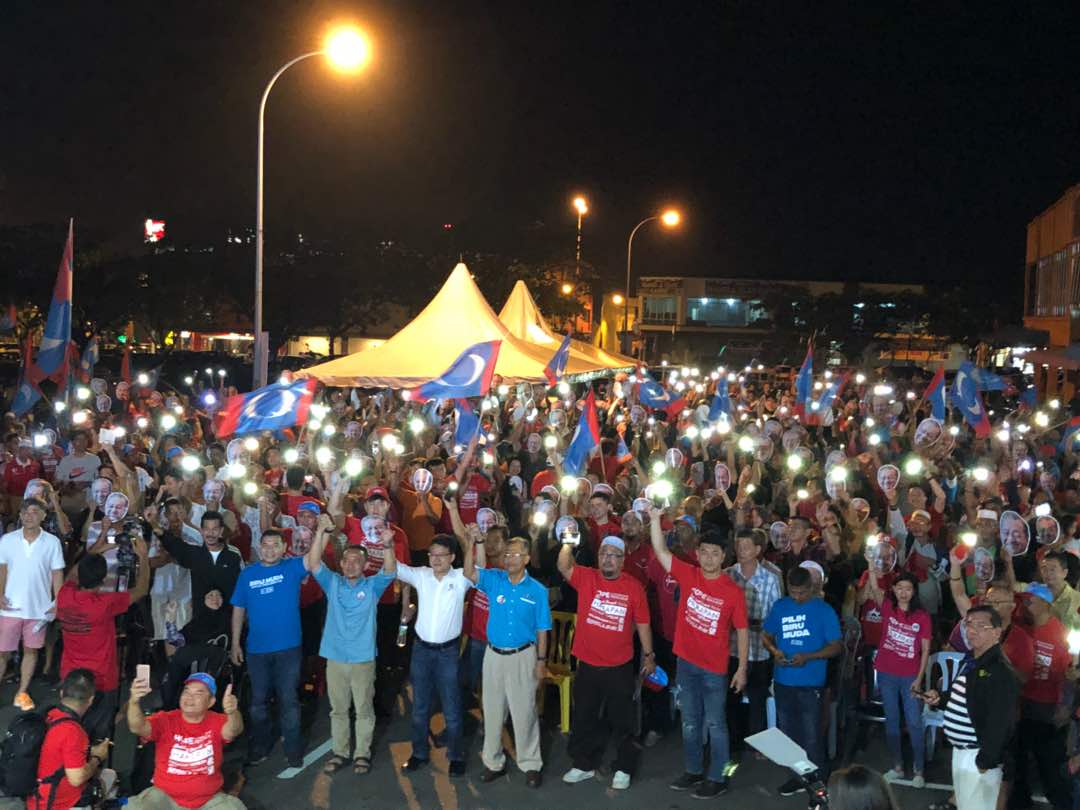
EK: One of the strengths of the opposition since 2008 is its ability to work the ground: how can an alliance like this lose that skill so rapidly?
LCT: It is easier to shape public opinion as a protest movement, but it’s difficult to manage interests when in government. In the opposition, you can stir up emotions, but in government, you have to manage interests. We (Pakatan Harapan) were actually a grand coalition – Pakatan, on the one hand, and Bersatu at the other end. It was a grand coalition of parties that were previously not together, but when moving towards governing, it took great effort to put together a concerted position.
Still, I think we perhaps didn’t work hard enough to get everyone on the same page. That process came too fast and I don’t think we spent enough time getting everyone to agree on a single agenda and focus within a short span of time.
As in any other change of government, when you run as the opposition, you are very much a protest movement. This is not unique to Malaysia. But when you govern, you have to govern coherently. That transition happens in other countries more smoothly because they are established democracies.
We were trying to do two things: we were trying to transit from a permanent opposition to governing, while also pursuing democratisation. (The year) 2018 was not just a change of government per say; 2018 was also democratisation – for the first time, we defeated a one-party state. We were trying to create a state that was non-partisan. We were trying to conduct various reforms so that the state eventually becomes a neutral party in a democracy.
I had warned much earlier – in March and October 2019 – that Pakatan could end up a half-term government because the other side was all about burning the house down. It was not interested in playing the role of the opposition. We didn’t do fantastically well, but I think within these constraints, when history judges us, we will be judged fairly.
EK: You have written about the Sheraton Move and the fall of PH, and about all that happened. There is a vacuum, however, about why it happened. What were the inherent fragilities of the PH coalition?
LCT: It happened at three levels: One, the Dr Mahathir-Anwar relationship; two, other people were interested in becoming prime minister; and, three, the ethnic anxieties among Malays and non-Malays were whipped up by the then opposition.
When these three factors combined, it became a very difficult situation to handle. In October 2019, there was an attempted coup spearheaded by Datuk Seri Hamzah Zainudin, Datuk Seri Mohamed Azmin Ali and Hishamuddin. The idea at that time was to create a government without Anwar and to sack DAP and Amanah from the coalition. DAP has 42 seats and Amanah 11 seats: they were thinking of sacking DAP and Amanah and replacing it with 18 from PAS, 18 from GPS Sarawak and 17 from Hishamuddin, which happens to be 53 seats as well.
The idea was that, without DAP and Amanah, Anwar would not have the support to be the next prime minister. It was very much intertwined. By whipping up anger towards the DAP among Malays, it provided the justification needed to sack DAP. All this was thought up in a few months, particularly after the so-called Azmin video came about. The rest, of course, is history.
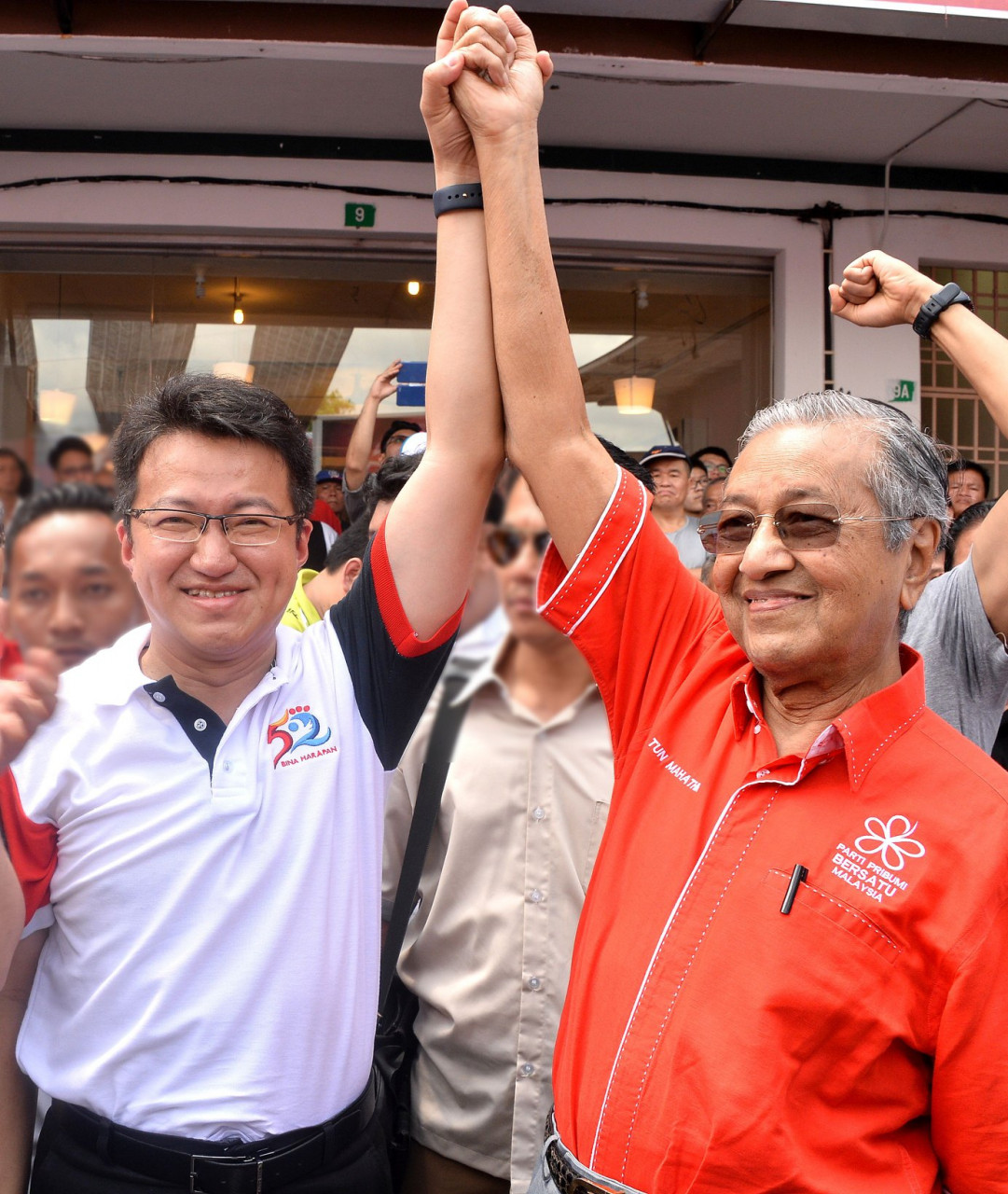
EK: Was Dr Mahathir insulated from all of this? What was his level of knowledge?
LCT: I would say, when we formed the government, Dr Mahathir was not prepared to accept Anwar as a co-governing partner. Anwar was also not prepared run a government with Dr Mahathir. There was this thinking that there would be a Dr Mahathir period and an Anwar period of governing. That was inherently not sustainable.
I had advocated even during that time that there should be a Dr Mahathir-Anwar government and subsequently an Anwar-Dr Mahathir government. There were people who warned me that a Dr Mahathir-Anwar/Anwar-Dr Mahathir government would not work, but it was in our interest and in the interest of all Malaysians. That was not done, and both of them eventually paid the price.
EK: What was your relationship with Dr Mahathir like?
LCT: He is a good listener. I think he has some clear grand ideas about the region, about Malaysia’s place in the world that not many other people share.
I enjoyed talking to him about defence and how to perceive Malaysia’s role in the region. I don’t particularly enjoy talking to him about the economy – some of his economic ideas are stuck in an era when Malaysia pressed down wages to export to the US. We were doing very well at some point but these recipies may not necessarily work for the future. And, I think Dr Mahathir is stuck in not being able to recognise that Malays are now 70% urban. But its not only him; many other Malay leaders and others think that Malays are essentially a rural population with no agency, therefore, they need to be represented by politicians presenting this idea that Malays are weak, are being bullied… That idea is not helpful in the political discourse.
I was trying to convince Dr Mahathir that actually, more than 70% of Malays are urban, and even those in rural areas are sophisticated and have their agency. As a nation, we should tap into this agency and recognise that every Malaysian deserves a better future and that we will have to rethink our economy so we can move forward as a nation towards a better future for everyone.
EK: Can you give a sense of what the state of consensus and cohesion among the opposition is like today?
LCT: We have to be prepared to deal with a possible snap election sometime in 2021, but it is not just the opposition that is looking for a new formula. Perikatan is also looking for a new formula, Umno is looking for a new formula. Umno has to deal with the legacy, or liability, of the kluster mahkamah (court cluster) and, at the same time, deal with the situation of their clash with Bersatu. They will have to decide whether they will fight Bersatu, stay out (of the alliance) or continue to be subjugated to Bersatu’s whims and fancies.
So, we are in a situation where I think there will be a lot more debate about how the opposition will look like and how the government will look like, and that debate will continue well into 2021.
EK: The contemporary political landscape is shrouded in uncertainty – one group of people are engaged in intrigue, while another seems to be consumed by a sense of hubris. What if a snap election delivers a hung Parliament?
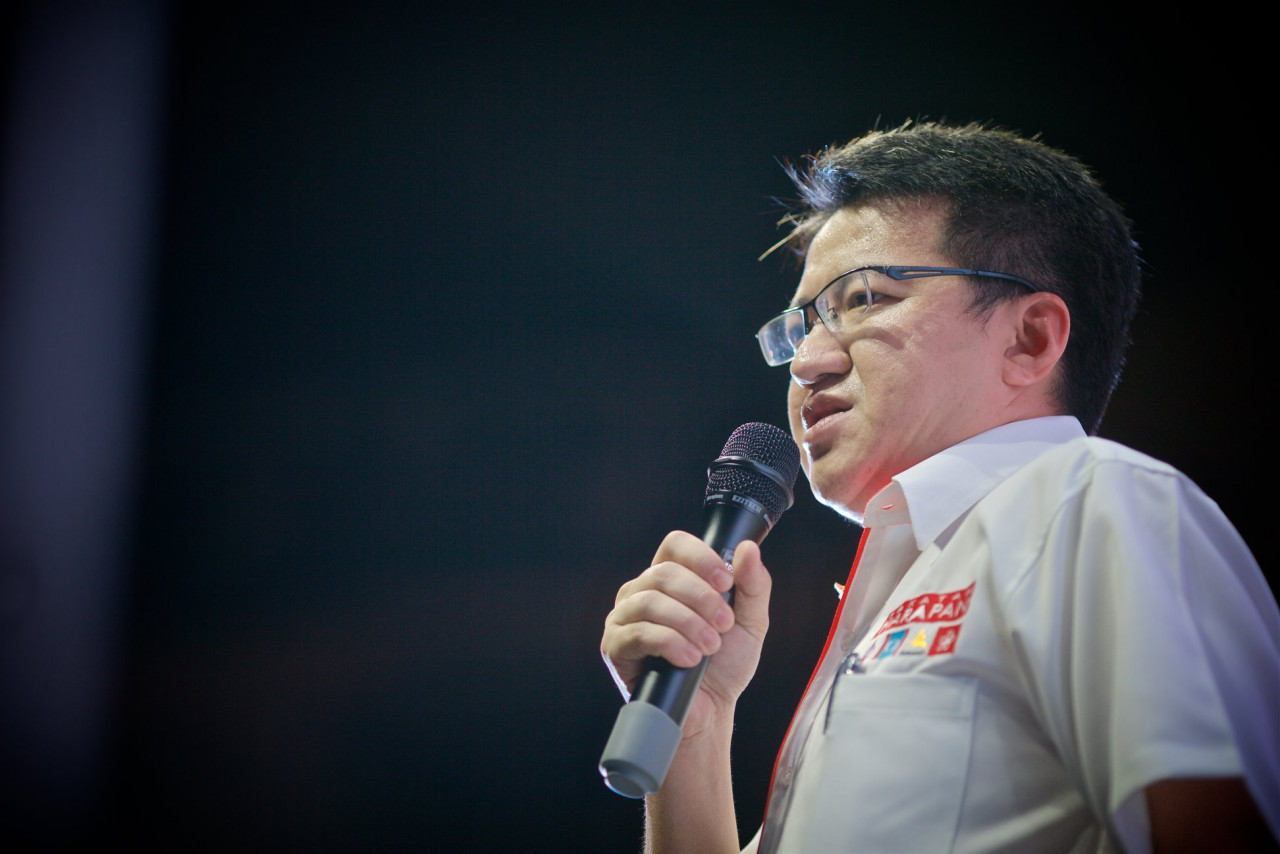
LCT: I hope there are enough people sensible enough to avoid going for a general election at this time during a pandemic. At the same time, whoever is prepared to go for it will have to be ready to accept the fact that the outcome of the election could well be the similar to what we have now. Malaysia has been a 50-50 society since 2008. In 2008, the opposition received 47% of the votes; in 2013, the opposition won the popular vote by 51%; and, in 2018, Pakatan received 48% of votes in a three-cornered fight.
This 50-50 context in terms of votes has been there for a while: in terms of seats, chances that it will end up with a similar result continues to be very high.
With the ball now in Muhyiddin’s court, the question is whether he is prepared to recognise that in the future elections he might call, chances are he will end up with a similar result while finding himself out of office.
Is he prepared, then, to see the opposition as a partner in dealing with Covid-19 and to accept some form of ceasefire? Will he treat the opposition fairly? Will he include the opposition as part of co-governing through parliamentary mechanisms and committees, and be prepared to call an election a year-and-a-half from now when, hopefully, the Covid-19 situation settles and we have a better economy? I don’t know whether people running the show are prepared to go there, but that should be the solution.
EK: And, what do you think will induce Muhyiddin to arrive at that place?
LCT: If his coalition implodes now, there will have to be a general election. He is leaving himself no margin for error. The majority is so thin. That is not good for the nation, where the mindset is always to dominate. What I am saying is that all of us will have to accept the fact that we will not be able to dominate or eliminate our opponent. We will have to learn to respect our opponent, work with our opponents within the coalition or within a parliamentary framework.
EK: Since we are in a state of such fluidity, what is your response to calls for a unity government?
LCT: I think political unity should come in the form of parliamentary democracy – we need to recognise that today, you may be the winner and tomorrow, you may be in the opposition. Within such a situation, it is important to find equilibrium, a parliamentary mechanism to work together.
I don’t believe you can have a unity government of 222 MPs. It is almost impossible to form a singular unity government that includes two-thirds or three-quarters of the MPs. I don’t think that kind of a unity government will exist. It is better for us to recognise that Parliament is the mechanism and we govern by drawing legitimacy through bipartisanship. It is difficult to do because we are trained to think that the government knows best.
There is no need for a grand unity government when you recognise that we can leave the fight to the elections and govern together. Let us perceive the opposition as a co-governing partner through a parliamentary committee system. The minister will still run the show but ministerial officers come to parliamentary committees, share their challenges with MPs, and MPs from both sides can find common ground. Recommendations can be made to the government, which takes those recommendations in good faith and implements some of them. You can eventually agree upon 70% while the other 30% can be left to another day. Elections can be about the 30% of differences due to values, ideology, different interests but we can get 70% done on the basis of common ground, common human affairs and common governing issues.
That, I think, should be the mindset.
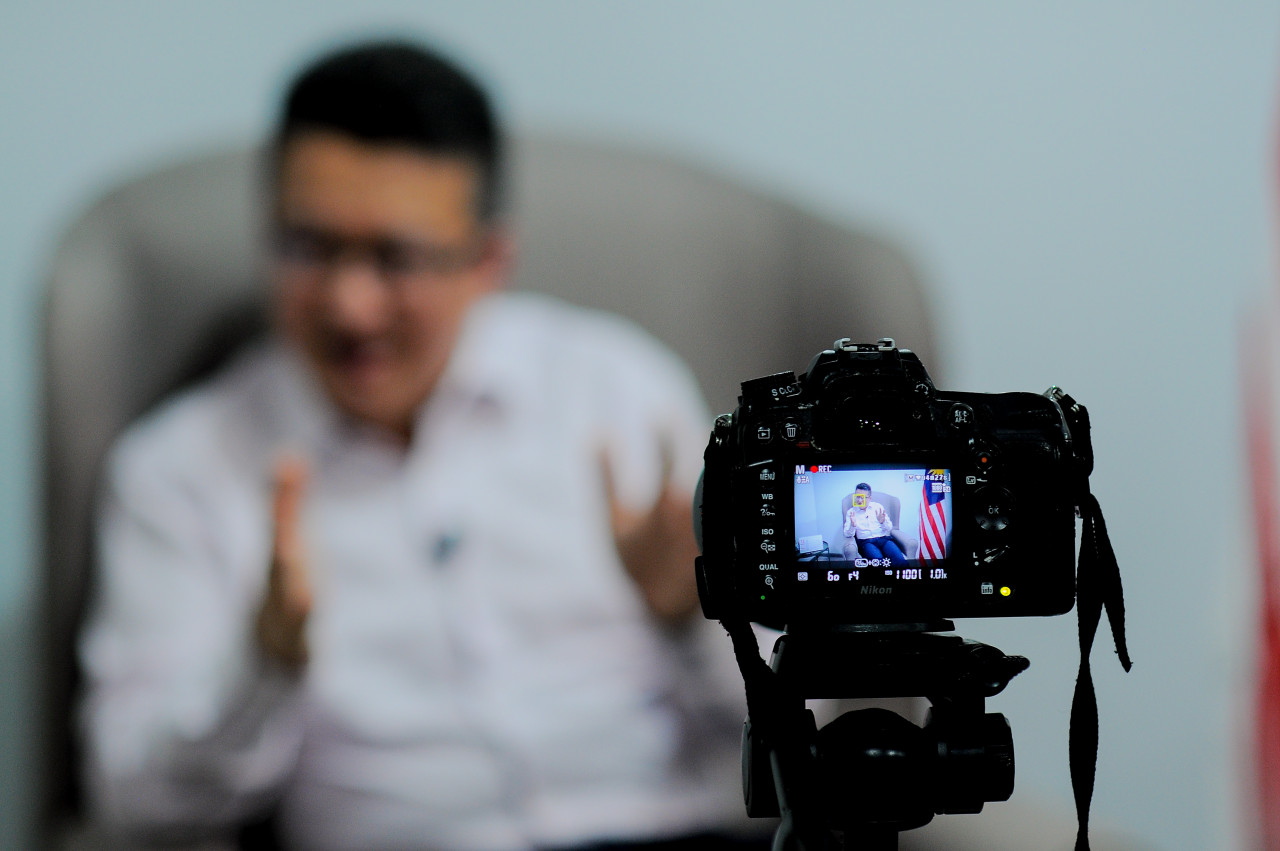
EK: What are you thoughts about the effect of the pandemic on Southeast Asian countries? There will eventually have to be common strategies to address movement and the regional economy. What form of regional solidarity can emerge from this Covid-19 experience?
LCT: Unfortunately, we don’t have leaders who really invest in regionalism. (Indonesian) President Joko Widodo seems inward-looking, (the Philippines’ Rodrigo) Duterte is fighting his own battles and Muhyiddin is probably not very interested in the region. Richer countries are not thinking about paying for some of the cost of the weaker partners in the region. Asean doesn’t seem to be going anywhere at this time. The larger and richer nations, including Malaysia and Singapore, will have to be prepared to lead and work with other countries for a more regional approach to issues. That is the reality.
This is imperative because we are facing unprecedented challenges – Covid-19, migration, China-US tensions at our doorstep – we are dealing with a more hostile environment. A regional approach that goes beyond simply saying we are neutral will have to be devised. We will have to be a lot more proactive.
If we look back, Asean was at its greatest when Suharto, Dr Mahathir, (Fidel) Ramos and Lee Kuan Yew were at their prime in the early 1990s. I think the decade of the 90s was when Asean was able to act in a concerted way, including the expansion of Asean.
At that point of time, you had leaders who talked to each other a great deal more, who shared a vision of the post-Cold War period. This was partly due, also, to Dr Mahathir.
But at this moment, no one is showing leadership and we don’t have the solidarity needed to deal with this crisis. – The Vibes, February 7, 2021



